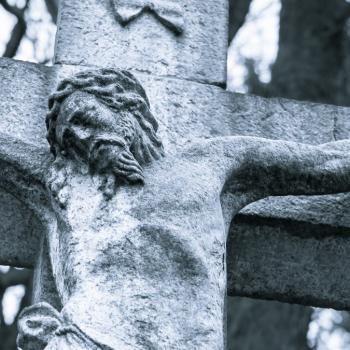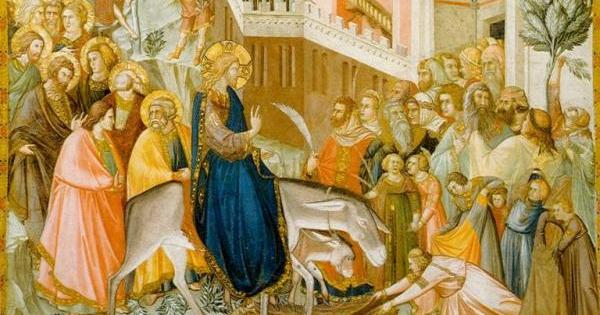
I’ve asked him if I could use his question as the basis for a blog post. He agreed (but prefers to stay anonymous). I’ll post the question below, and then respond:
So I wanted to write to you to see if you could give me some advice, because I still consider myself Christian. I think Jesus was the Messiah, in the sense that He was a descendant of David who spread knowledge of God around the world and created a spiritual kingdom (the Church), but Jesus also taught that He was God’s unique, miraculous Son and the apostles also demanded faith in His resurrection.
You see, on one hand, I believe in God, love Jesus and the Christian community, find his teachings inspiring and connect with Him emotionally and personally, and want and feel a major need for the resurrection to be real. But at the purely mental level, it seems to me uncertain or even unlikely that it physically happened. I have spent years in the mainstream church and pray about it. I don’t find it illogical or impossible, nor am I disillusioned by Christians as people or resent the Church, nor do I feel the Bible demands Biblical inerrancy, as you rightly described in your essay as reasons why some people leave Christianity.
It’s that when I try to separate my biases and emotions from the issue and look at it objectively using the kinds of discernment that mainstream Christians do for other phenomena and religions, it seems more likely that it didn’t happen. To do this, I try to think of and compare the reasons in favor of it and against it.
Dear A,
You’ve posed a great question and have obviously done a lot of thinking about these important matters. This is the type of question that keeps many of us ruminating, speculating and exploring for a lifetime.
The “tug” between your subjective, emotional desire–need, even–to believe in the resurrection as a real, time-and-space event in the life of Christ and a nagging sense that “objectively” speaking it might not be true (critical reflection happening at the “purely mental level”) reflects a serious wrestling with the question. And of course, you are not alone in that.
I do suspect that too many people undermine the subjective side of the wrestling as “just emotions,” or as unscientific and on that basis they are perhaps too quick to disregard the very human phenomena that accompanies religious belief–and to discount the felt “need” for a belief to be true as falsifying evidence.
That goes something like: If I “need” it to be true, it must not be true.
I get the logic behind that–the logic that raises the suspicion-antennae in people trained in critical thinking and perhaps disposed to spurn emotion and passion as irrelevant to the question of truth.
That said, it’s just not wise to pit emotion against logic, or subjectivity against objectivity, in this way. One of the books that opened my eyes to the ways that subjectivity (passion, emotion, vested interest, etc.) factors positively in the ways we apprehend the world and discover truth is Michael Polayni’s Personal Knowledge.
He–a historian of science–argues that the history of science does not support the common picture of science as a purely “objective” enterprise that has no room for the subjective aspects of the human experience. In fact, the impetus behind scientific discoveries is human passion, curiosity, even vested interest. Though those things can go wrong, too.
We should weigh the evidence–rational, empirical, historical, and so on. We should be open to questioning our inherited religious beliefs–particularly when those beliefs rest largely on faith or trust in the unobserved and are obviously not grounded in everyday (or even any day) experience and observation. I have not seen anyone resurrected from the dead and I have not experienced it myself–so I don’t know from empirical observation whether or not resurrection is a viable idea. Like many aspects of religious belief, the validity of resurrection can only be verified eschatologically–which is to say, in the future.
We can examine the historical and textual (not to mention philosophical, theological, and so on) arguments for and against the validity of a time-and-space resurrection of Jesus. And we can consider what science might even have to say about the conceptual possibility. For example, if Jesus was (bodily) resurrected after his death, where is he now? In a body–somewhere? Where? Or if we want to get really funky: When?
After we’ve done all that investigative, critical work–considering arguments for and against the historicity and legitimacy of the resurrection narratives, we’re still left with the question: What will we do with it?
None of us was there to observe Jesus during and after his death. And none of us has (I’m just going to assume, for the sake of argument!) observed a dead person raised to life. We haven’t died yet, so we just don’t know what the future holds. We don’t know if we will–or won’t–continue on in some form or other.
I like to think in terms of the possibility of “singularities.” Miracles–supernatural divine interventions or interruptions of normal everyday operations of life–by definition are rare and are often embedded within stories (folklore or myth) which serve all sorts of cultural and social functions. Religion is a very human endeavor and we must always be open to the ways that our humanity factors into the stories that we tell ourselves and pass along to others. But I am not ready to rule out the miraculous and, if supernatural divine interventions happen anywhere/time in space and time history, you would think (I acknowledge my Christian convictions here) they would happen in and during the life of Jesus. If Jesus was truly unique, and represented and embodied God in a unique way, then both his life, his death, and his resurrection would serve to draw attention to his uniqueness and to the coming kingdom.
The bottom line is I just don’t think the evidence and the written testimonies can be either proven or dis-proven, so we’re left with either trusting the accounts, disbelieving them, or something in between.
Maybe we just keep on exploring, neither completely trusting nor completely disregarding our emotions and our rational, critical, capacities, but holding them together as we live on love, faith, and hope. But I would urge you to not disregard the tug of your need for the resurrection to be true.
For more theology posts and discussion, like/follow Unsystematic Theology on Facebook











